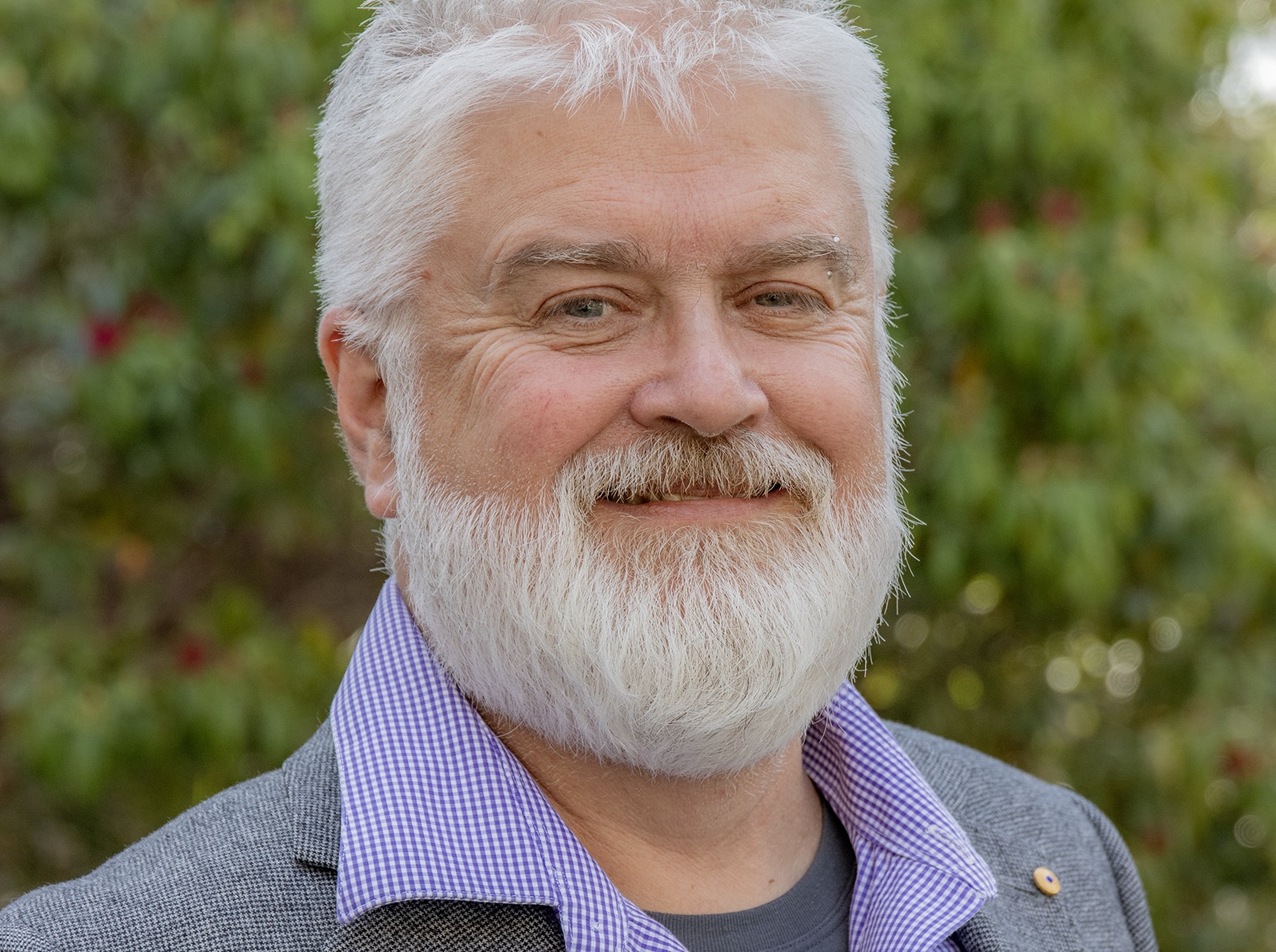Violet Vines Marshman Oration

The Violet Vines Marshman Oration is an annual event designed to engage people in discussion about rural health and wellbeing.
Orators are chosen for their expertise in areas that impact rural communities and for their ability to inspire people at all levels.
Consistent with the philosophy of the Centre, the Oration is not focused on a purely academic audience. Rather, it is a community celebration of rural Australia where guests are informed about rural health and social issues, and encouraged to think about how they can contribute to meaningful change.
2024 MARSHMAN ORATION
Transforming Indigenous Health in Rural Australia
with Professor Ian Anderson AO
Thursday 25th July, 2024
La Trobe University Bendigo Campus
We are excited to announce that our 2024 Marshman Orator will be Professor Ian Anderson AO. Ian is a palawa man, currently living in lutruwita (Tasmania) and is the Deputy Vice-Chancellor (Academic) at the University of Tasmania. Ian has a distinguished career in academia and leadership in Melbourne, with a longstanding passion for Indigenous issues and rights. His expertise has had a major influence in Indigenous health policy at Australia’s highest level of government.
Ian's previous roles include ANU Deputy Vice-Chancellor, Pro Vice-Chancellor at the University of Melbourne and Deputy Secretary for Indigenous Affairs in the Department of Prime Minister and Cabinet. At the University of Melbourne, Ian was the Foundation Chair of Indigenous Health, Foundation Chair of Indigenous Higher Education, Assistant Vice Chancellor Indigenous Higher Education Policy, and Pro Vice-Chancellor (Engagement). Ian completed his PhD in Sociology at La Trobe University in 2007 and received the La Trobe Distinguished Alumni Award in 2020.
Read Ian's full bio here

Past Orators
2023: Susanne Tegan
As the CEO of the National Rural Health Alliance, Australia’s peak body for rural, regional and remote health, Susanne Tegen is an advocate for rural communities. She has lived and worked in rural and remote Australia for most of her working life while living in rural South Australia, Northern Territory, New South Wales, Australian Capital Territory and Victoria. Her interests have led to stakeholder led medical workforce strategies, farm safety, mental health services, remote monitoring and telehealth initiatives, policies and funding change to support medical and health service access for rural and remote communities.
She recognises the value of rural medical and allied health training, community ownership and advocacy, health literacy, as well as government and private approaches to serving communities sustainably. Ms Tegen has served in Chief Executive roles for several medical and health bodies, including MedTech and other peak organisations together with leading RANZCO, specialist training programs for medical professionals, policy and research. Susanne has been on several government and health portfolio advisory committees, Medicare review panels, providing insights from a service delivery, strategic policy and consumer access lens to further the cause of rural and remote health.
2022: Professor Ruth Stewart
The 2022 Oration was be delivered by the National Rural Health Commissioner, Professor Ruth Stewart. The Rural Health Commissioner's Office works with regional, rural and remote communities, the health sector, universities, specialist training colleges and across all levels of government to improve rural health policies and ensure there remains a strong focus on the needs of rural communities. Since it was established in November 2017, the Office has become an important part of our Government’s approach to improving rural health outcomes.
2019: Professor Patrick McGorry AO
Although quality of life in Australia is above the OECD average in terms of health, wealth and education, almost half of all Australians will experience a mental health condition at some time in their lives. In Victoria, mental health problems and mental illnesses are one of the major causes of poor health. Professor Patrick McGorry AO explored the causes, prevention and recovery of this pandemic.
Professor Patrick McGorry is the Executive Director of Orygen, Professor of Youth Mental Health at the University of Melbourne, and a Founding Director of the National Youth Mental Health Foundation (headspace). He is a world-leading researcher in the area of early psychosis and youth mental health, and has been directly involved in research and clinical care for homeless people, refugees and asylum seekers. Professor McGorry has published extensively in the specialist literature and serves as Editor-in-Chief of Early Intervention in Psychiatry. He is a Fellow of the Australian Academy of Science, the Academy of the Social Sciences in Australia and the Australian Academy of Health and Medical Science. He is current President of the International Association of Youth Mental Health and past President of the Society for Mental Health Research (2013-17) and the Schizophrenia International Research Society (2016-18).
2018: Emeritus Professor Stephen Duckett
The antecedents of the poor Indigenous health status reflects the dispossession of prior generations and are not going to be addressed quickly or simply. The solutions include putting more authority into the hands of Indigenous communities to manage their own health services, to set their own priorities and to work in culturally appropriate ways. Professor Duckett explored the complex interaction of factors involved in the creation of health and disease, including the social and cultural context, the family environment, and the physical environment.
Emeritus Professor Stephen Duckett is Health Program Director at the Grattan Institute. He has a reputation for creativity, evidence-based innovation and reform in areas ranging from the introduction of activity-based funding for hospitals, to new systems of accountability for the safety of hospital care. From 1996-2006 he was Dean of the then Faculty of Health Sciences at La Trobe University, and a Pro Vice-Chancellor for much of that period. He was appointed an Emeritus Professor of the University in 2014. An economist, he is a Fellow of the Academy of the Social Sciences in Australia and of the Australian Academy of Health and Medical Sciences.